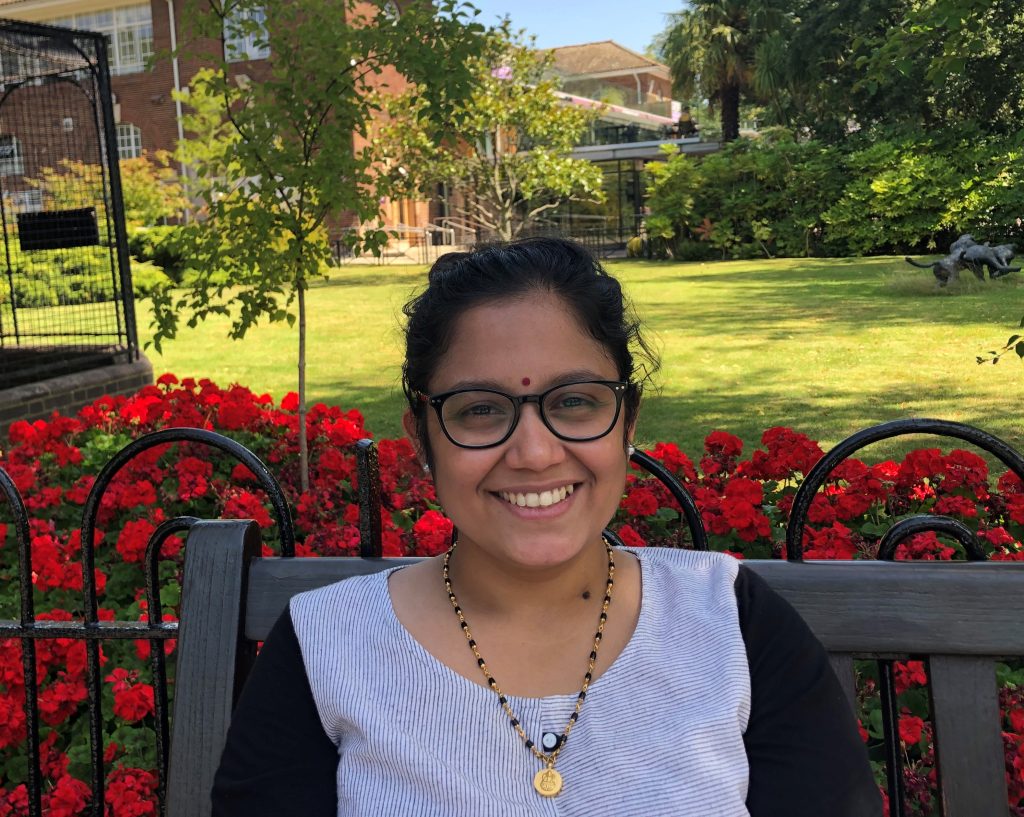Meet Our New Faculty | Dr. Gayathri D. Naik
June 9, 2023
We extend a warm welcome to Dr. Gayathri D. Naik who joins us as Assistant Professor of Law. Previously, she was an Assistant Professor at the National Law University, New Delhi, where she also coordinated the NLU-D – SOAS Summer School on Climate Law and Justice. She has also worked as a Graduate Teaching Assistant in the School of Oriental and African Studies (SOAS).
Her key research areas include Environmental Law, Water Law and Policy, Water Justice, Environmental Sustainability, Tort Law, and Human Rights.
In this interview, she shares more about her interests and her work.
 Can you tell us more about yourself/your background?
Can you tell us more about yourself/your background?
I hail from the district of Alappuzha (referred to as the Venice of the East), known for its serene backwaters, lagoons, and coir industry. I graduated with an LLB from Government Law College, Ernakulam, M G University, where I secured the first rank in the university. I then completed my LLM in International Legal studies from South Asian University, New Delhi, where I bagged the SAU Gold Medal and SAU Merit Award. I also hold a Master’s in Public Administration from IGNOU. I completed my PhD in Environmental Law from SOAS University of London as a Commonwealth Scholar. In my doctoral research, I examined the impacts and implications of water-related subsidies on social and distributive equity and environmental sustainability in groundwater access and regulation in India.
I started my academic career in India as an Assistant Professor at National Law University, New Delhi. I taught Environmental Law for undergraduate and postgraduate law students and coordinated the Indian Environmental Law course module in LLM Pro for IAS Trainees at LBSNAA. During my doctoral studies, I also worked as GTA in the School of Law, SOAS.
I was also a Junior Fellow for Climate and Energy Group with London-based Think Tank, Global Research Network (GRN), the Knowledge Hub Coordinator with Commonwealth Scholarship Commission, and a Senior Editor with Kathmandu Law School Review. Outside academic research, I love learning the violin and experimenting with new recipes for my family.
What are your main areas of interest and teaching? How did your interest in these areas begin?
My key areas of interest and research has been Environmental Law, Water Law and Policy from Indian and international perspectives. I am interested in exploring water issues – equity, rights, and justice from an interdisciplinary perspective with intersections of law, development studies and political ecology. I taught Environmental Law in NLU Delhi and also supervised postgraduate students who were writing on climate law. Currently, my research focuses on the intersections of water justice and climate justice in exploring a balance between the human right to water, and water for nature.
My interest in the water sector and environmental law developed from the influence of my local neighbourhood. Despite being surrounded by plenty of water resources, I could see people in our district struggling to access safe and clean drinking water. The pollution of water bodies from local agro-based industries and consequent health hazards remains sidelined in mainstream policy discussions. Furthermore, intellectual deliberations with my peers from South Asian countries and expert faculty in SAU during my LLM strengthened my interest in water law research, inspiring me to write a dissertation on groundwater regulation in India. A strong passion for research and interest to explore more water issues, motivated by my mentor, Dr. Stellina Jolly, inspired me to pursue a PhD in water law at SOAS.
I was privileged to be supervised by two water experts: Prof Phillipe Cullet and Prof Peter Mollinga, which led to the adoption of an interdisciplinary approach in my thesis to examine the equity and justice issues created by water subsidies in access, allocation, and regulation of groundwater in India.
Your thoughts on starting your teaching journey at NLS?
I am excited to join the NLSIU fraternity, known for its legacy in legal education and research. Learning law and researching new legal issues has always been my passion. Being a part of the top law school in India could provide me with the perfect space for exploring more avenues in law and legal research through collaborations with experts in India and abroad.
Which one book/podcast / published piece you would recommend to our students and why?
Lucas Chancel’s Unsustainable Inequalities: Social Justice and the Environment (HUP 2020) is one book I suggest to those interested in understanding the intricacies of social injustice and environmental sustainability. This book, which I have reviewed for the LSE Review of Books, points out that social inequality has a crucial role and implications for ecological unsustainability, widening the gap between resource availability and accessibility.
Could you highlight some of your key projects or publications?
My research and publications always explored various dimensions of water law and policy. The interdisciplinary analysis of various water issues is essential to unpack the inequity and injustice in accessing water for the realisation of a right, guaranteed as a fundamental right, necessary for sustaining life. I have contributed to this aspect in various publications, including law journals and edited books.
My latest article, published in the Chinese Journal of Environmental Law, co-authored with Dr. Stellina Jolly, examines the development of legal personhood to rivers in India and Bangladesh, and its impact and implications on water governance. Presently, I am working on an abstract of the paper for the special issue in the journal, ‘Water International’ on “Water Management in Basins of Rivers, Lakes and Aquifers: the challenges ahead after 30 Years of innovation”.
To read more of her publications, please visit Gayathri’s faculty page.

